I have read a CSV file into Pandas and converted the resulting dataframe into a list of dictionaries for each row using the 'to_dict(orient='records') function. A shortened version of the list looks like this:
records = [{'addjob': 'ADDJOB',
'age': 'AGE',
'disab': 'DISCURR13',
'eth': 'ETHUKEUL',
'full': 'FTPT'},
{'addjob': 'ADDJOB',
'age': 'AGE',
'disab': 'DISCURR13',
'eth': 'ETHUKEUL',
'full': nan}]
I am trying to imitate this structure by using a dict comprehension like so:
cleaned_records = OrderedDict([
{k:v for k,v in i} for i in records
])
EDIT: removed 'OrderedDict' as it was a mistake (error is the same):
cleaned_records = [{k:v for k,v in i} for i in records]
However, it is giving me the following error:

The reason I am trying to do this is so I can remove those keys from the dictionaries whose values are null before passing them to another set of functions.
I've been at this for quite a while now and I'm baffled as to why this dict comprehension is not working. Can anyone help me?